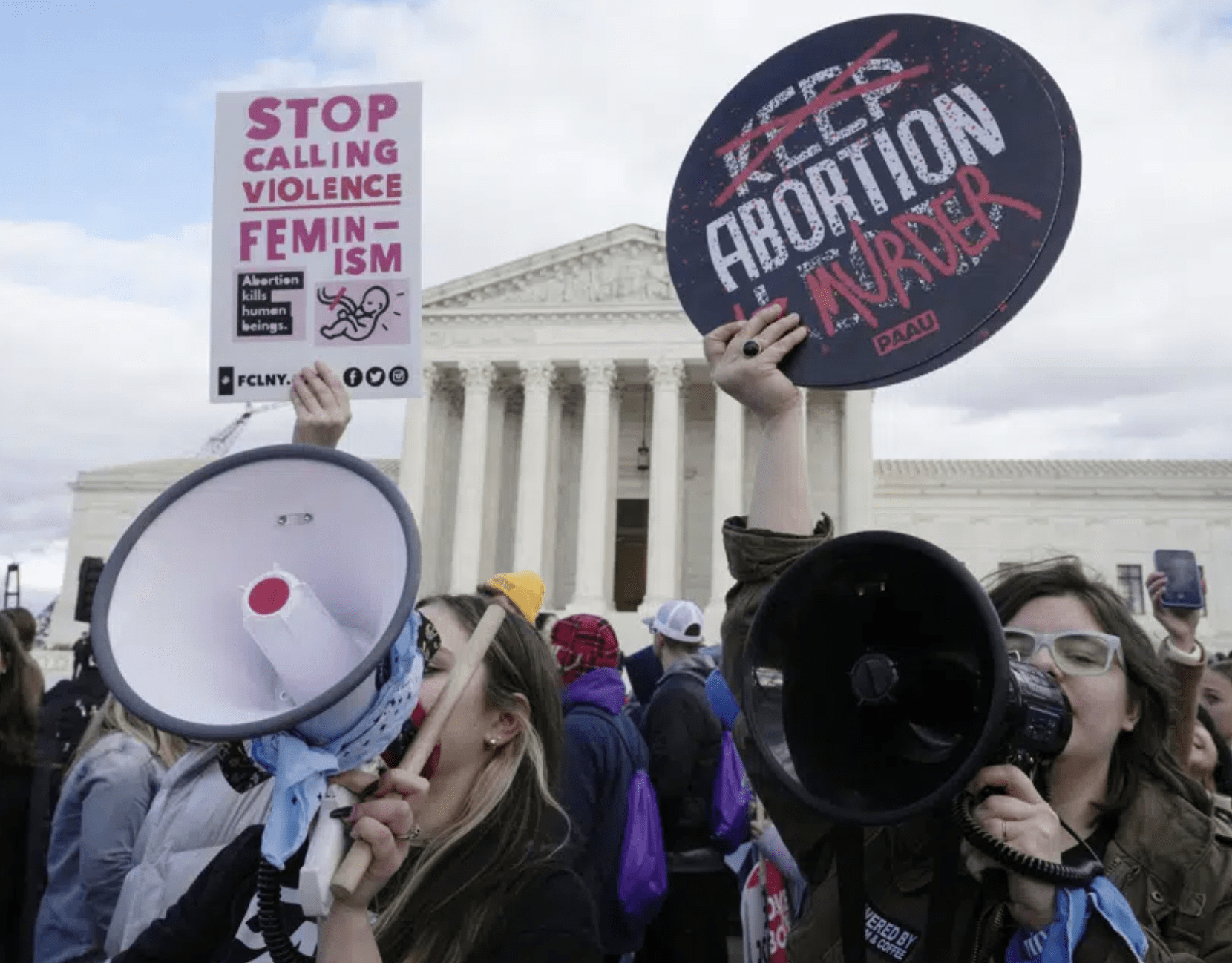AP – North Dakota has become the latest state to ban abortion in most cases — again.
Gov. Doug Burgum on Monday signed a ban that has narrow exceptions: Abortion is legal in pregnancies caused by rape or incest, but only in the first six weeks of pregnancy. Abortion is allowed later in pregnancy only in specific medical emergencies.
The law is intended to replace a previous ban that is not being enforced while a state court weighs its constitutionality.
Ten months after the U.S. Supreme Court overturned Roe v. Wade and a nationwide right to abortion, actions by lawmakers and in courts — and the interplay between them — continue to create confusion.
Here is a look at what is known and not known about where abortion policy stands in North Dakota and where it falls in the national landscape.
WHAT LAWS ARE IN PLAY IN NORTH DAKOTA?
The state adopted a “trigger law” in 2007 to ban abortion in the event that Roe was overturned.
But soon after last year’s Dobbs v. Jackson Women’s Health decision did just that, a judge said the blanket abortion ban could not be enforced while courts decided if it complies with the state constitution. In March, the state Supreme Court kept enforcement on hold.
That left in place a ban on abortion after 22 weeks of pregnancy.
But in the sparsely populated state, the impact of any policy change is muted. Until Dobbs, the state had only one abortion clinic. After the ruling, the clinic moved from Fargo to nearby Moorhead, Minnesota.
The state averaged about 75 abortions a month in the first half of 2022. But since the only clinic left the state, the state Department of Health says there have been no “reportable” abortions.
WHAT’S NEXT?
While the latest ban’s sponsor and lawyers critical of it say the law is now in effect, the state attorney general was not available Tuesday to comment on how and when the state would enforce the new law.
The director of Red River Women’s Clinic, which sued over the previous ban, said lawyers at the Center for Reproductive Rights are assessing the new one and considering whether to challenge it in court, too.
The director, Tammi Kromenaker, said in a message to The Associated Press that the new law leads patients to “wonder if they are doing something criminal by accessing healthcare. No patient should be faced with that feeling.”
In a statement Tuesday, Center for Reproductive Rights director Elisabeth Smith suggested there could be grounds to challenge the new law.
“North Dakota lawmakers are attempting to bypass the state constitution and court system with this total ban,” Smith said. “They are simply trying to repackage a ban that the North Dakota Supreme Court recently said likely violates North Dakotans’ fundamental rights under the state constitution.”
HOW DOES IT COMPARE TO OTHER STATES?
Thirteen other states have in place bans on abortion at all stages of pregnancy. They are Alabama, Arkansas, Idaho, Kentucky, Louisiana, Mississippi, Missouri, Oklahoma, South Dakota, Tennessee, Texas, West Virginia and Wisconsin.
Four other states have bans throughout pregnancy where enforcement is blocked by courts.
The majority of these bans were adopted in anticipation of Roe being overturned, and most do not have exceptions for rape or incest.
Exceptions have been a major point of contention in Indiana and West Virginia laws. They are now being considered in Louisiana and have been added to a new, more restrictive ban in Florida.
The idea of trying again after a court blocks enforcement isn’t unique to North Dakota. The Republicans who control South Carolina’s legislature are at odds about what kind of ban to put in place after the state’s top court blocked one in January.
WHAT ACTION HAVE OTHER LEGISLATURES TAKEN?
Since Dobbs was adopted, some of the biggest state-level abortion debates have not been about whether to allow abortion, but rather on related policies.
In Wyoming, abortion pills were specifically banned in March. This month, Idaho lawmakers made it illegal for an adult to help a minor obtain an abortion without parental consent.
The Democratic governor in Kansas has vetoed measures to fund anti-abortion centers and require clinics to tell patients that medication abortion can be reversed with a regimen rejected by major U.S. medical groups.
Some Democrat-controlled states, including Colorado, Minnesota and Oregon, are moving in the opposite direction: adopting or considering measures intended to protect people who travel from states where abortion are illegal to obtain one — and the doctors and others who help.
DO THE POLICY CHANGES CREATE CONFUSION?
There’s some evidence that they do.
A new report by groups that advocate for access to abortion used researchers posing as patients to ask Oklahoma hospitals about emergency obstetric care policies.
The groups – Physicians for Human Rights, Oklahoma Call for Reproductive Justice and the Center for Reproductive Rights – said that none of nearly three-dozen hospitals they contacted could outline a clear, consistent policy about the decision-making process for abortions necessary to save the life of the woman.
___
Trisha Ahmed is a corps member for the Associated Press/Report for America Statehouse News Initiative. Report for America is a nonprofit national service program that places journalists in local newsrooms to report on undercovered issues. Follow Trisha Ahmed on Twitter: @TrishaAhmed15



